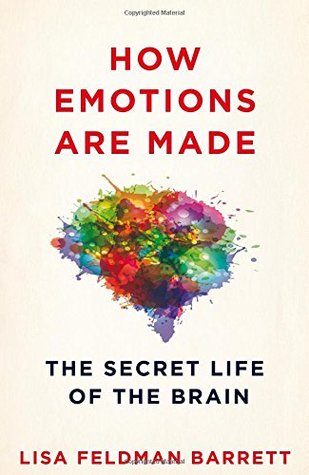How Emotions Are Made
Notes from a book and why I didn't finish it.

TLDR; #
While it has some interesting ideas, it's illogical and while the author makes a lot of extraordinary claims they are now followed with extraordinary evidence.
I stopped reading after the 10th chapter, as it went into applications of the idea into various domains - I was already too irritated to care.
Good #
Still, I got a lot of interesting ideas out of it.
- Emotions are constructed - they are concepts or predictions we use based on context and how we feel.
- I want to read more about predictions, simulation, concepts, and categories - I'm afraid the book doesn't do a good job of explaining all of it.
- Body Budget - the general advice is the same as usual: healthy food, exercise and sleep are the basis of your good emotions.
- Power of Names. I want to read more about this at some point as well.
- Social Reality. A lot of things are "just in our heads" like money, art, governments etc. but are "real" and really important.
- Deconstruct your emotions into "affect" (valence and arousal) or just into physical sensations. Your irritation may be the effect of caffeine and not what someone said.
Irritating #
I was "constructing a lot of irritation" while reading this book.
- Just because we can't find their physical fingerprints of each emotion doesn't mean they all are constructed. It seems like a logical fallacy.
- I don't agree with the thesis that animals or small kids do not have emotions because people in the study can't categorise them based on images of faces without context. The author herself mentioned that we need context for emotions.
- Watch Chimp Empire or look at a dog. Yes we guess what they feel, but I disagree with the idea that they don't have emotions because they don't have language. I will add here that it's highly confusing because what normal people call emotion is now being separated into emotions and "affect" in scientific literature. Still, I don't think animals have only affect.
- Just because languages don't have the same words for emotions doesn't mean people do not feel the same things. They may be feelings that require a new concept you need to learn, but I don't buy the idea that it's required for all of them.
I recommend taking a look at the 1-star reviews on Goodreads for some great takes on this book.
Notes and related ideas #
"Proper Names" by John Searle | Jeffrey Kaplan. #
| This is a video lecture in a course on the philosophy of language. It explains John R Searle's seminal and groundbreaking 1958 paper "Proper Names". Searle discusses and ultimately rejects both Frege's and Mill's theories of proper names. But Searle does think that associated with every name there is something like Frege's sense, except Searle thinks that it is a purposefully vague cluster of descriptions. Therefore, Searle's theory is often called the Cluster Theory of Proper Names. This video explain's Searle's theory and it uses a lot of examples involving Beyonce, Jay-Z, and Aristotle.
I recommend watching it as the ideas of names and concepts show up a lot in the book.
True name #
I've found it fascinating when thinking about names and concepts in ancient cultures. But, it's also explored in some of my favorite fiction True_name | In_popular_culture_and_fiction
Want to learn more?
Sign up to get a digest of my articles and interesting links via email every month.